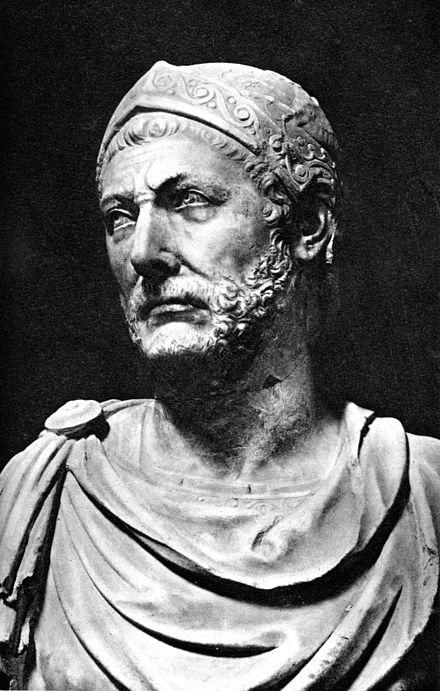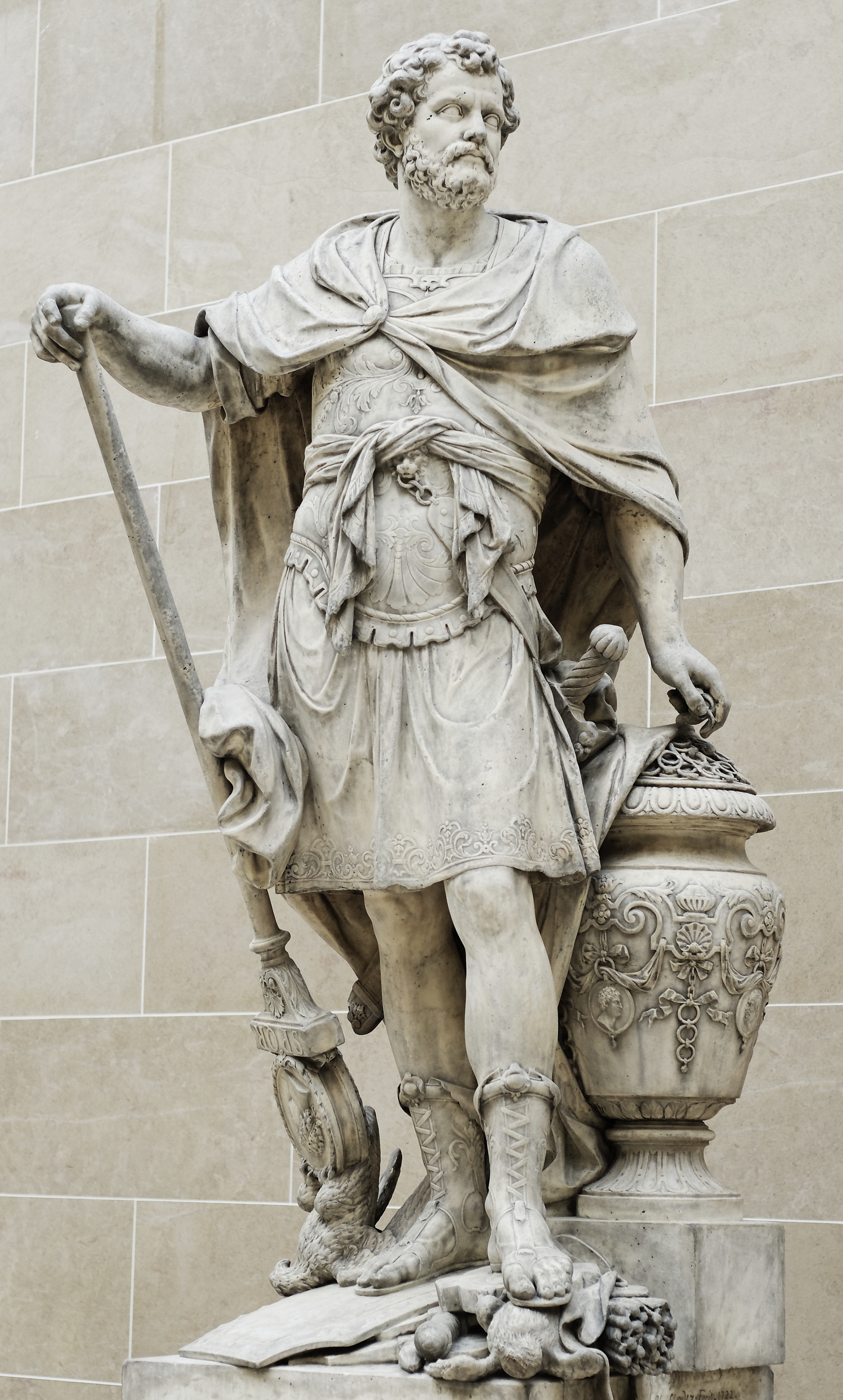Hannibal Barca
A Carthaginian general, who waged a 10 year long campaign in Italy, crippling and nearly destroying the Roman state.
 When he was just nine years old, his father Hamilcar Barca brought him to Spain during the First Carthaginian War. Before this, however, his father made him promise upon a sacrificial offering that he would never be a friend to the Romans. After the death of his father, Hamilcar, and his brother-in-law, Hasdrubal, Hannibal was proclaimed commander of the army at only 25-26 years old. Cornelius Nepos reports, “...it is not to be disputed that Hannibal surpassed other commanders in ability as much as the Romans surpassed all other people in valour” (Nepos, Hannibal 1). He completed the conquest of Hispania, south of the Ebro river. Rome, feeling threatened by Hannibal, made an alliance with the Spanish city of Saguntum. In doing so, Rome ignored the previous treaty made with Hasdrubal that they the land south of the Ebro would belong to the Carthaginians. Hannibal then besieged the city for eight months until it fell. So began the Second Punic War.
When he was just nine years old, his father Hamilcar Barca brought him to Spain during the First Carthaginian War. Before this, however, his father made him promise upon a sacrificial offering that he would never be a friend to the Romans. After the death of his father, Hamilcar, and his brother-in-law, Hasdrubal, Hannibal was proclaimed commander of the army at only 25-26 years old. Cornelius Nepos reports, “...it is not to be disputed that Hannibal surpassed other commanders in ability as much as the Romans surpassed all other people in valour” (Nepos, Hannibal 1). He completed the conquest of Hispania, south of the Ebro river. Rome, feeling threatened by Hannibal, made an alliance with the Spanish city of Saguntum. In doing so, Rome ignored the previous treaty made with Hasdrubal that they the land south of the Ebro would belong to the Carthaginians. Hannibal then besieged the city for eight months until it fell. So began the Second Punic War.
Beginning in the spring of 218 BCE, Hannibal led his troops across the Pyrenees and across the Alps into Italy (map). He is said to have begun his march with 38,000 infantry, 8,000 cavalry, and 38 elephants, though about half of those are reported to have survived the long march. Once he reached Italy, his army won several key battles. The Battle of Trebia and the Battle of Lake Trasimene were terrible blows both to the Roman army and to Roman morale. At the Battle of Cannae, one of the worst defeats in Roman history, it is estimated that somewhere between 50,000-70,000 Romans were captured or killed. Among the dead were the Roman consul, two proconsuls, two questors, twenty-nine out of forty-eight military tribunes, and eighty senators. Because of this victory at Cannae, many Italian states joined his cause as well as the Macedonian King Philip V and Hieronymus of Syracuse.
 Hannibal faced several obstacles including insufficient support from his allies and from his government back home. Quintus Fabius Maximus “Cunctator” also implemented a strategy for the Romans, which proved highly successful. Instead of meeting the Carthaginians in large pitched battles, they instead targeted supply lines and engaged in guerrilla warfare to to “delay” Hannibal. Because of these factors, Hannibal and his allies faced a series of losses that marked an end to his fortunes in Italy. After fifteen years, he was recalled back to Africa in 203 BCE to defend the Carthaginians against the Roman general, Scipio Africanus.
Hannibal faced several obstacles including insufficient support from his allies and from his government back home. Quintus Fabius Maximus “Cunctator” also implemented a strategy for the Romans, which proved highly successful. Instead of meeting the Carthaginians in large pitched battles, they instead targeted supply lines and engaged in guerrilla warfare to to “delay” Hannibal. Because of these factors, Hannibal and his allies faced a series of losses that marked an end to his fortunes in Italy. After fifteen years, he was recalled back to Africa in 203 BCE to defend the Carthaginians against the Roman general, Scipio Africanus.
Though there were some attempts to make a peace treaty, negotiations fell through when the Carthaginians captured a Roman fleet, stranded in the Gulf of Tunis, and stripped it of its supplies. After the Battle of Zama and Hannibal’s defeat, Carthage surrendered to Rome. Hannibal survived and spent his waning years bouncing between royal courts in the East as a celebrity and occasional general-for-hire. He died somewhere between 183 and 181 BCE.
→ Attalus Entry: Hannibal Barca5
→ Smith Entry
→ Wikipedia Entry